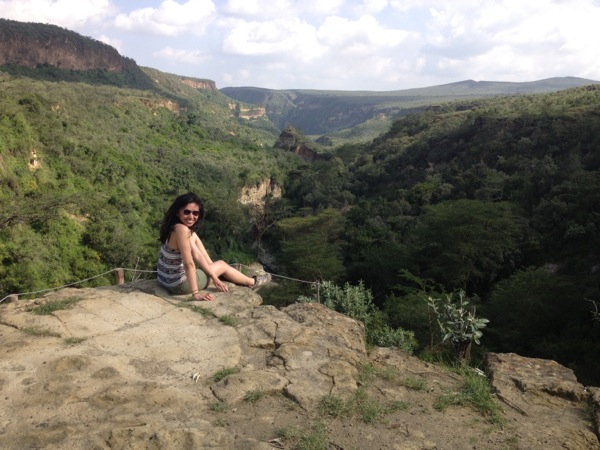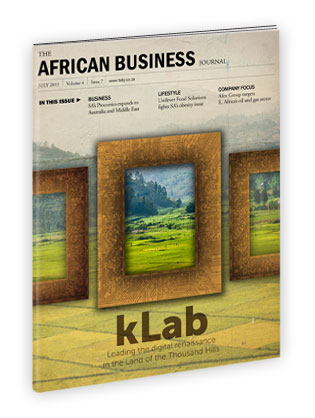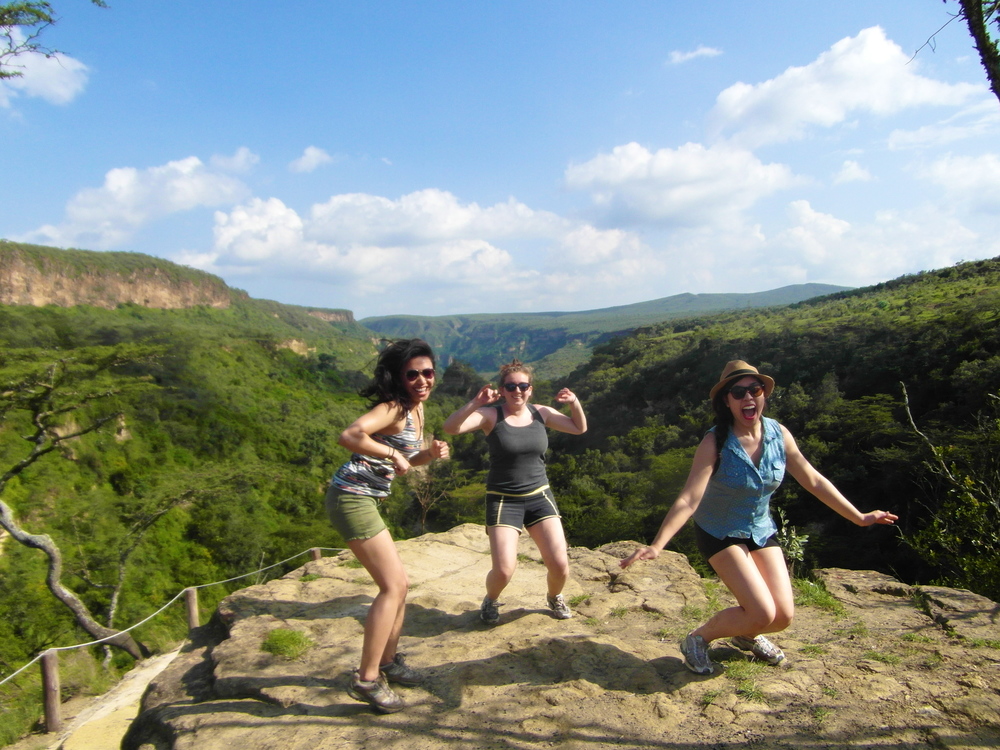Take the elevator up to the 6th floor of the Telecom House in Kigali, Rwanda and you'll not only find a stunning panoramic view of the city's endless hills, but you'll also walk right into a vibrant, open space of modernity and innovation known as kLab. While in the city, I had the distinct opportunity of writing the cover story about this up and coming tech hub and incubator for the African Business Journal. Speaking with founding member and general manager, Claude Migisha, I gained more insight into the country's burgeoning ICT industry and the various solutions local entrepreneurs are developing. "Africa will be the next birth place for innovation and the hub for world renknowned tech companies," says Migisha and it was both humbling and thrilling to see first-hand the seeds of this reality being planted at kLab.
Do You
3 countries, 6 weeks, and one too many bumpy and dusty bus rides later, OG’s East Africa Gender and Human Rights program is quickly coming to a close. I’m currently writing this on our final overnight bus ride from the beautiful coastal town of Watamu back to the bustling city of Nairobi (12 hours being flung side to side in your seat? NBD, we got this!).
It’s hard to believe that six weeks have flown by already, but at the same time it feels like we’ve been here for an eternity. We’ve just done so much, felt so much, and seen so much that it’s almost impossible it all happened in such a relatively short period of time. But here we are…
We’ve been through Kenya, Uganda, Rwanda, and back. We’ve eaten beans and chapatti, ugali, sukuma, undengu, mandazi, and pilau more times than we’d like. We’ve been on our fair share of matatus, motos, and tuk tuks. We’ve squatted for long drops more times than we can count (what are toilets?!?!) We’ve biked through the savannah, hiked through gorges, and rafted on the Nile River. We’ve met with local activists advocating for trans and intersex rights in Nairobi, engaged in discussions with sex workers in Kisumu who are educating their peers on sexual health, and exchanged insights at a Polytechnic University on what dating and sex is like in a Kenyan vs. North American context. Most importantly, we’ve connected and created what will be a long-term partnership with a youth-led community based organization called the Young County Change Makers.
But the best part about this journey? Sharing the entire experience with Alex, Ashley, Emily, Hailey, Jean, Josh, Leah, Meg, Morgan, Nicole, Steph, and Taylor — 12 unbelievably kind, strong, and beautiful people who have taught me more than I could have imagined. Each one has taught me some sort of lesson on patience, humility, generosity, and honesty. And collectively, we’ve all learned to just “do you”…to be unapologetic about who you are and what makes you happy. If you want to take some alone time, do you. If you want to explore a more specific issue or engage in a different aspect of our volunteer project, do you. If you want to wallow in frustration or spin around on the beach in happiness saying how beautiful you are (ahem, Tay), you go right ahead and do you! Whatever the case may be, just do you!
It’s been an exhilarating, challenging, frustrating, and just straight up amazing journey and I’m happy to have been able to “do me” the whole time…in all my beautiful, OCD, and hangry little self…without judgment or ridicule (ok, maybe a little ridicule!) And it’s been a gift to get to know each person on this trip, stripped of all make-up, attachments, and history…just as they are in the here and now.
So as we go our separate ways and board different planes to start new adventures, let’s never forget to stay true blue and always do you!
Sawa sawa.
Grappling with the cliché of mzungu and African child
We started our community service projects this week here in Kisumu, Kenya with our partners, the Young County Change Makers, a community-based organization empowering youth in the area. As expected, it has been a struggle, mentally and emotionally.
We were at the Nyalenda informal settlement when we were surrounded by little school children. The scene was all too cliché. Hurray! Mzungus (Swahili word for Westerners) surrounded by happy African children! Haven't we seen too much of that already? Are we living and telling the same narratives? I found myself outside of the moment, just watching my friends hug and play with the kids. A part of me wanted to take pictures to capture the moment, but the other part of me couldn't help but feel uncomfortable and disdain for the whole situation. So what did I do? I became cold and distant to these children, vacantly giving polite high fives, but really wanting no part of this all too typical scene.
And I went home with all of these questions about the stories we tell of Africa, our impact as visitors to this regions..and just felt overwhelmed and actually paralyzed by my thinking. And I really hated myself because instead of enjoying these children's presence and playing with them as all children love to do, I spent the afternoon inside my own head. Instead of seeing and treating them as human beings, they became just abstractions in my academic lens. And in the end, isn't that worse? Isn't that more dehumanizing?
But today at Joyland, a school specifically for kids with physical disabilities, I put my thinking cap off and just allowed myself to be in the moment. I played soccer with one of the classes, exasperated by the heat but enlivened by how my ass was getting seriously kicked by these kids. We took photos of each other and many were fascinated by my Asian heritage. "Are you Chinese?", they'd ask. "I'm from the Philippines". Many Jackie Chan moves were exchanged nonetheless. I also got to spend time with my new friend Tabitha, this sassy little 12 year old, who told me about her everyday experiences at the school and even showed me how to do a proper catwalk. At the end of the day, she gave me her bracelet saying, "I want you to keep this so you don't forget me". I gave her my hair tie to remember me by. Cheesy and cliché, but her gesture really touched me and it was all real.
As my good friend, Saleema, wrote to me today, "it's not a cliché to bond with another human being, and it will never be a cliché to laugh with a child". And in the end, making those genuine connections is what we and what Operation Groundswell is all about...
Our New Normal

We're biking along the savannah at Hell's Gate National Park. To our left are warthogs, to our right are a herd of zebras. We cruise along the dusty, rocky path with the sun beating down on our mzungu skins, but with the breeze whipping through our hair and cooling off our sweaty backs. It's a glorious moment, one of those "holy-shit-my-life-is-basically-a-movie-right-now-possibly-even-better" moments. I can't help but yell out a reminder, "guys, we're in Africa...this is your life right now!!!". A resounding "WOOHOOO!!!" with arms up in the air from the rest of the crew. This is real life, this is our normal.
I grab an orange Fanta after the long hike through the gorge. As I reach for the bottle, the man in military garb touches my arm with a quizzical look on his face. "Tattoo?", he asks me. l smile and reply. "It's a tree from my favorite book called The Giving Tree". I explain the story as briefly and simply as I can and its underlying message of unconditional love. I show him the initials of my parents that are engraved on the tree. He smiles and just nods his head. "Kwaheri", I wave goodbye. Did I ever think I'd be chatting with a Kenyan army man about The Giving Tree? Can't say I ever did. But I walked away and continued on sipping my Fanta like that interaction was the most normal encounter...
Yesterday morning, I was sitting on a stump in front of Lake Naivasha enjoying a moment's respite as I read The Dharma Bums. A baboon casually scampers on in front of me. I'm distracted for a second as my eyes follow to see where it runs off to. I snicker at myself and whisper under my breath with a combination of both amusement and annoyance, "pfffttt, baboons". So brief a moment and I'm back enveloped in my book.
All these crazy things that just a week ago I would never have imagined my life to be. And yet, here I am. And there it all is in front of me, around me. And it all just feels like the most normal, natural thing on Earth.
But then again...what is normal? Who defines "normal"? We all do. And today, sitting in the hot, humid air of Kisumu City in a cyber cafe is my normal.




